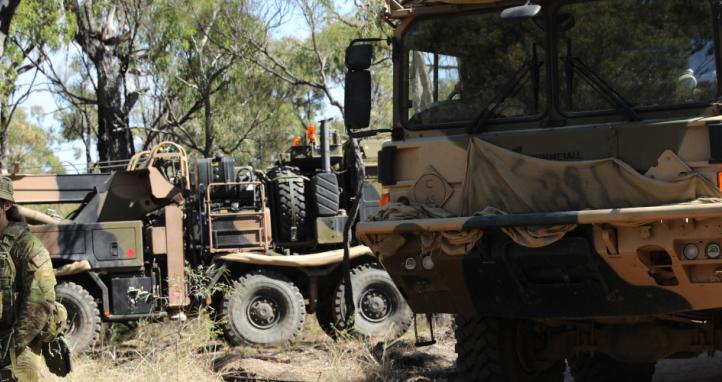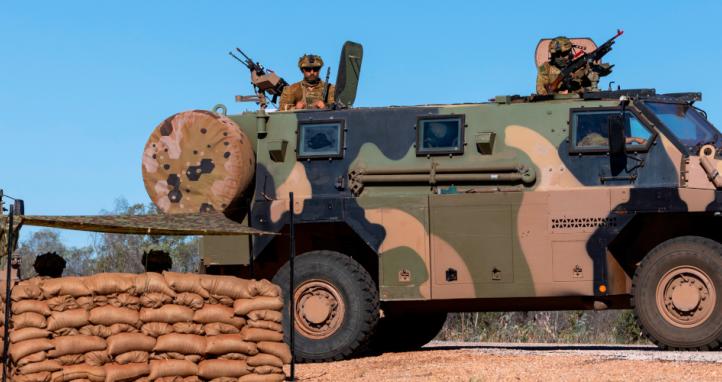This article was a submission to the 2022 Cove Competition.
I’m currently the battery commander of the 1st Regiment, Royal Australian Artillery’s Combat Service Support (CSS) Battery and it’s my first year in the job. What follows are my thoughts and reflections on the things I’ve learned so far. Some of it is specific to CSS sub-units within first line units, other parts are more general.
While there is always a danger in espousing what you think you know while you’re still in the midst of the job, these are the things that I’m comfortable sharing after the first third of my tenure. What follows is a mix of lessons learned and beliefs reaffirmed through my experience thus far.
The job starts the day you’re selected.
Army selects sub-unit commanders around Easter for the following year’s appointments. This provides over six months in which to prepare yourself for the specific role you will be undertaking. Use it wisely.
In my case, the week I found out about my appointment I bought myself a journal to write out a reading list of books, articles, podcasts, and doctrine that I thought would be useful and set about reading my way through it. I also kept a record of other useful material that I found along the way, and key lessons I took from each. I became much more focused in my reading.
I also sought out several mentors who I trust and respect and scheduled regular conversations with them which later proved invaluable, more so than anything that I read. These conversations have carried on throughout this year and continue to prove indispensable.
Lastly, I started making contact with my unit as soon as I could. This included the person I’d be taking over from and the commanding officer. Establishing early contact with the current incumbent is critical. It effectively spreads the handover out over the year and leads to multiple conversations that cover far more detail than you otherwise could. It also helped build a rapport that has supported multiple phone calls this year. I also found it useful to start following the unit’s Facebook page.
Accept risk and prioritise your efforts.
There is simply not enough time to give everything the attention we might like. This is especially true for CSS sub-units who need to support the rest of the unit as well as train themselves. Set clear priorities in your own mind and understand where you’re accepting risk. This was probably the single best piece of advice I received from my mentors before starting. These priorities will necessarily need to be fluid and change over time; however, the key is striking the right balance for the current circumstances and actively managing your risks. For example, I generally group things (mentally) as follows and then prioritise them as needed:
Soldier management. This covers all aspects of soldier management including processing administration, managing workload; managing complex welfare issues, and scheduling members to go on individual courses – whether for trade or promotion. When Army is already struggling with retention, good soldier management is how we can help to preserve the force we currently have while developing it for the future.
Corporate governance. Good corporate governance provides freedom of action. Yes, it is time consuming, but without it you can expect to have more soldier management issues, worse material readiness, more audits, and less capability. For example, your unit will struggle to leave barracks if the road transport governance isn’t done well. When it comes to corporate governance, getting it right saves orders of magnitude more time in the future that can be reinvested somewhere else. It also safeguards our people and equipment, thereby preserving overall capability.
Support to unit. CSS sub-units exist to support their parent unit in achieving its mission. However, it isn’t enough to provide good support to the unit for a single activity. Your team needs to be able to provide it day in, day out and on an enduring basis. To do that you need a qualified, competent, confident, motivated, healthy, and well-equipped workforce – which is why good soldier management and corporate governance are so essential. Balancing current and future operations is difficult but you need to get it right if you’re to provide consistent support to your unit.
Battery training. This includes PME and collective training. It doesn’t include individual courses however as I view that as soldier management. The reality for CSS sub-units is that any collective training you undertake carries an opportunity cost in terms of lost trade time. This is the area that I’ve found most difficult to balance, but there are tools to help. Simulator facilities provide a way of delivering meaningful training in a compressed timeframe with minimal resources. I’ve also found that rotating capability bricks has enabled us to get more people into the field, albeit for shorter stints. This has also created opportunities for more JNCOs to lead small teams in the field.
It's a leap not a step. Sub-unit command is neither like commanding a big platoon nor is it like being a super staff officer. It’s a significant leap up from both and you’ll need to adapt to succeed. This was thrown into stark focus for me as my battery has about the same number of people as my platoon did all those years ago before I then spent all my captain time in various staff roles.
The difference is that as a staff officer you provide intellectual effort, but you ultimately don’t own the problem, the resources, or the risk. As a sub-unit commander, you often do.
Also, as a sub-unit commander you not only need to command, lead, and manage your team in the here and now, but you also need to have a broader focus and longer time horizon. You have a responsibility to those that come after you to identify systemic improvements – not just quick fixes.
PT is your friend.
We all know that PT is good for your body and your brain but it’s also a powerful tool for commanders. Attend PT whenever you can and ensure you have your eyes and ears open. Through it you’ll gain regular engagement with the soldiers under your command and can get a feel for their personalities, physical strengths, and mental toughness.
For sub-units that struggle to find time for dedicated battery training, the incorporation of battle PT can help ensure people’s equipment is in good order and ready to go while also providing opportunities for JNCOs to exercise their own leadership skills through running the sessions.
Off-base PT has also proven to be a handy tool for providing opportunities for JNCOs to lead and show initiative while building morale and camaraderie within the team.
Manage yourself.
The day-to-day pace can be intense, the week-to-week tempo can be unforgiving, and two years can feel like a long time. You need to pace yourself and manage your health accordingly to avoid burning out. This covers both physical and mental health. Consciously manage your physical and mental wellbeing and go into the job with strategies in place. This includes taking time to relax and recharge outside of work.
See the humanity.
Your team comprises a collection of humans, each of whom has a life away from work. In turn that life consists of struggles, goals, strengths, weaknesses, fears, hopes, and families. They aren’t resources or tools, they’re people and should be treated as such. This doesn’t mean avoiding unpopular decisions, but it does mean you should understand the impact of your decisions, particularly on families. See your teammates for the people they are not the positions they fill.
Talk with your team.
It sounds quaint but it’s true, no one has a monopoly on expertise. Get out and about, walk the ground, and talk to your team. Be curious and be prepared to just be present and have a chat without agenda or timetable. You’ll be far better informed about the state of your sub-unit and have a better rapport with your team.
Relationships are key.
You’ll succeed or fail based on the strength of your relationships and professional networks. There is very little that you can do on your own, which is why we spend so much time talking about teams. You need to work through others. To do this you need good relationships. Not just up and down the chain of command but laterally with your peers both within your own unit and beyond it. Time invested in building and strengthening relationships is never wasted.
Enjoy it.
Sub-unit command is dynamic, exciting, challenging, and the time passes quickly. The job is a privilege – don’t lose your sense of humour and forget to enjoy yourself along the way.









